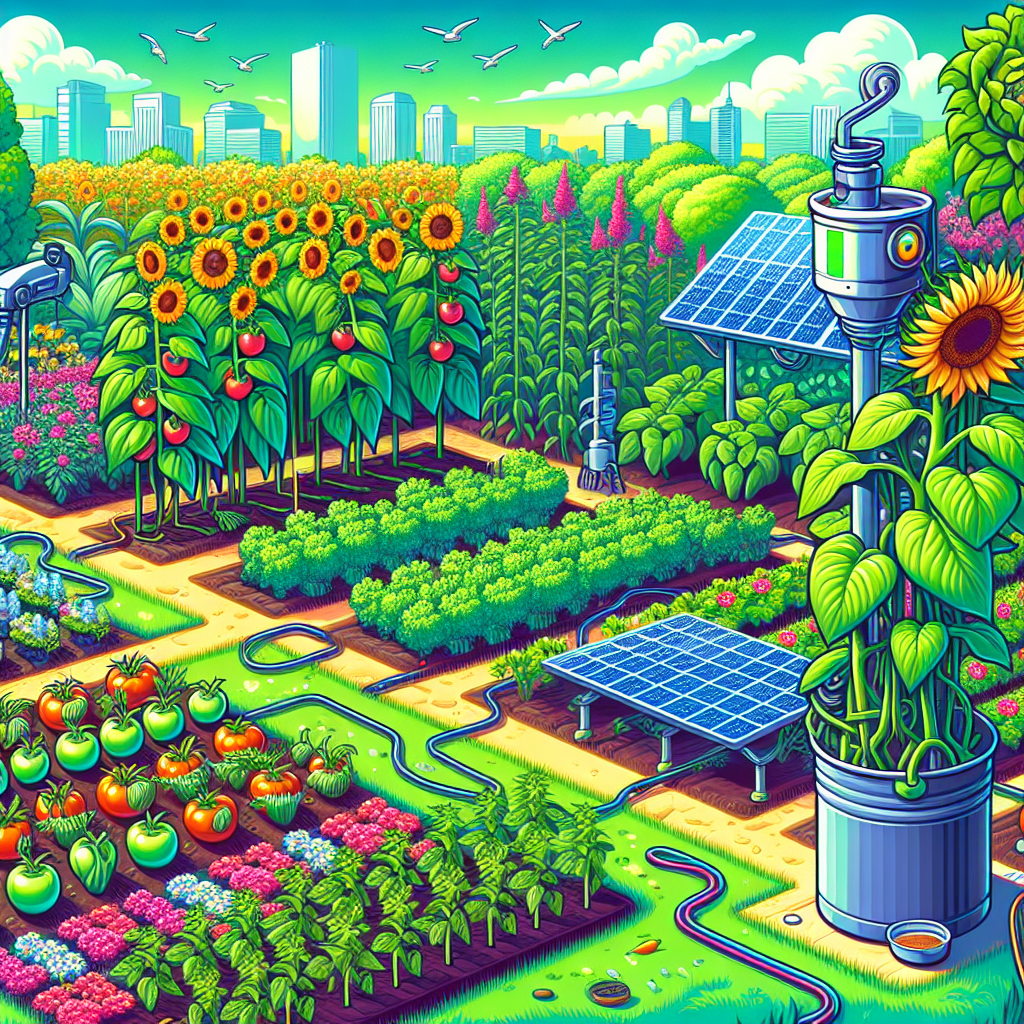Growing Together: A Comprehensive Guide to Richmond Community Gardens
This article delves into the world of Richmond Community Gardens, exploring their benefits, operations, and impact on the community. Through a case study of Adams Garden, we examine the successes and challenges faced by these initiatives. Looking ahead, we consider the future of community gardens in Richmond, highlighting opportunities for expansion and the importance of supporting policies. The conclusion emphasizes the significance of community gardens in enhancing sustainability and community well-being.

Overview of Richmond Community Gardens
Community gardens play a vital role in urban settings by providing green spaces for residents to cultivate plants, connect with nature, and foster a sense of community. Richmond, a city known for its dedication to sustainability and environmental initiatives, boasts a network of thriving community gardens that serve as hubs for social interaction and environmental stewardship.
The Benefits of Community Gardens
Community gardens offer a wide array of benefits that extend beyond the act of gardening itself. From environmental impact to social cohesion and health benefits, these green spaces contribute significantly to the well-being of individuals and the community at large.
Environmental Impact
According to Dr. Mark Ryski, an environmental scientist specializing in urban ecosystems, "Community gardens play a crucial role in urban biodiversity and can help mitigate the heat island effect in densely populated areas. These green spaces act as mini ecosystems, supporting pollinators and providing essential habitat for wildlife."
Social Cohesion and Community Building
Research by Dr. Sarah Chang, a sociologist focusing on community dynamics, highlights the role of community gardens in fostering social connections and building a sense of belonging. "Community gardens serve as meeting points for residents from diverse backgrounds, creating social cohesion through shared activities and a common love for gardening," notes Dr. Chang.
Health and Wellness
Nutritionist and wellness coach, Dr. Maya Patel, underscores the health benefits of community gardens. "Engaging in gardening activities has been linked to reduced stress levels, increased physical activity, and improved access to fresh produce, promoting overall wellness and healthy lifestyles among participants," explains Dr. Patel.
How Richmond Community Gardens Operate
Richmond Community Gardens operate through a structured framework that ensures efficient management, equitable plot allotment, and engaging community activities.
Organization and Management
Central to the success of community gardens in Richmond is effective organization and management. Dedicated teams oversee garden operations, coordinate volunteer efforts, and liaise with local authorities to secure resources and support.
Plot Allotment and Maintenance
Plot allotment in Richmond Community Gardens follows a fair and transparent system to accommodate diverse gardening interests. Regular maintenance schedules ensure that the gardens remain vibrant, productive, and visually appealing for all participants.
Community Events and Workshops
To enhance community engagement and knowledge sharing, Richmond Community Gardens host a variety of events and workshops throughout the year. From gardening classes to composting sessions, these activities cater to both novice gardeners and experienced horticulturists.
Case Study: Adams Garden in Richmond
Adams Garden stands out as a prominent example of a successful community garden in Richmond. Established over a decade ago, this garden has been a beacon of green activism and community involvement.
History and Development
Founded by a group of local residents passionate about sustainable living, Adams Garden started as a small plot of land and gradually expanded into a thriving green space with multiple vegetable beds, flower gardens, and a communal gathering area.
Successes and Challenges
The success of Adams Garden can be attributed to dedicated volunteers, supportive local businesses, and ongoing partnerships with educational institutions. However, challenges such as water scarcity during drought seasons and the need for additional funding have tested the resilience of this community initiative.
Community Impact
Adams Garden has had a transformative impact on the local community, bringing people together, promoting environmental awareness, and serving as a model for sustainable urban gardening practices. The garden has inspired similar initiatives across Richmond, reinforcing the collective spirit of green activism.
The Future of Community Gardens in Richmond
Looking ahead, the future of community gardens in Richmond holds promise for expansion, innovation, and greater community involvement. By addressing potential challenges and leveraging new opportunities, these green spaces can continue to thrive and make a lasting impact.
Opportunities for Expansion and Innovation
Dr. Ryan Wong, an urban planner specializing in sustainable development, emphasizes the importance of expanding community gardening initiatives in Richmond. "By integrating gardens into urban planning strategies and leveraging innovative technologies, we can create more inclusive and sustainable green spaces that benefit both residents and the environment," states Dr. Wong.
Potential Challenges and Solutions
Water management, land availability, and funding constraints are key challenges that community gardens in Richmond may face. Implementing water-saving technologies, securing long-term land leases, and exploring diverse funding sources are essential steps towards overcoming these obstacles.
Supporting Policy and Legislation
Advocating for supportive policies and legislation at the local level is crucial for the sustained growth of community gardens in Richmond. By collaborating with policymakers, urban planners, and environmental organizations, garden advocates can influence decision-making processes and promote the integration of green spaces into urban development plans.
Conclusion
In conclusion, Richmond Community Gardens play a vital role in enhancing environmental sustainability, fostering social connections, and promoting health and wellness. Through initiatives like Adams Garden and ongoing community engagement, these green spaces contribute to the overall well-being of Richmond residents and serve as models for urban greening efforts.
Call to Action
To continue the momentum of community gardens in Richmond, collaboration among residents, local authorities, and environmental advocates is essential. By supporting and advocating for these green initiatives, individuals can contribute to a more sustainable and vibrant urban landscape. Furthermore, engaging in further research and active involvement in Richmond's green spaces can deepen our understanding of the benefits of community gardening and inspire collective action towards a greener future.